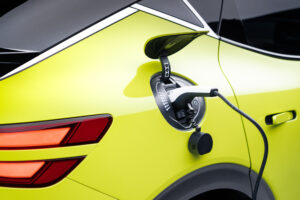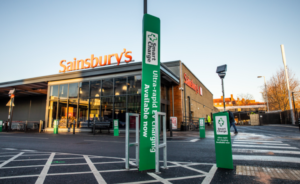Ban sale of diesel HGVs by 2040, urges report
The government should ban the sale of new diesel HGV lorries before 2040 and encourage the freight industry to move towards clean alternatives such as hydrogen or electric, says a new report by the National Infrastructure Commission (NIC).
The report says clean technology for HGVs is ‘well advanced’ and ministers should set out within the next two years how they plan to support the transition.
The commission, which provides the government with impartial, expert advice on major long-term infrastructure challenges, says worsening congestion is damaging the economy as well as increasing emissions.
It’s expected that heavy freight will increase by between 27% and 45%, with the number of miles covered by vans delivering goods increasing by as much as 89% over the same period as the demand for internet shopping increases.
The report says there needs to be better coordination between government, planning authorities and the freight industry and recommends the creation of a new Freight Leadership Council to bring all parties together to solve future challenges with an integrated strategy.
Birmingham, Leeds, Southampton, Derby and Nottingham will implement Clean Air Zones next year that charge high polluting HGVs as they enter the zones.
Chair of the National Infrastructure Commission Sir John Armitt said: ‘Whether it’s retailers, manufacturers or each of us as consumers, we all rely heavily on our freight industry. As one of the most efficient in the world, it rarely fails to deliver.
‘But we are paying the price for this miracle of modern service through the impact on our environment and air quality, and through congestion on our roads. Government must act to help businesses tackle these issues.
In response, the Road Haulage Association said recommendations for reducing road freight emissions are ‘not credible given there are no viable alternatives on the market,’ adding that the report lacks a clear roadmap and makes assumptions about technologies and infrastructure that haven’t yet materialised.
RHA chief executive, Richard Burnett said: ‘Their recommendations are simplistic and fail to spell out how government should lead a realistic, supportive transition from diesel.
‘New technology is welcome but it needs to be practical and affordable. A premature switch to zero-emissions lorries would disproportionately impact small freight operators.’
Mike Hawes, chief executive of the Society of Motor Manufacturers and Traders (SMTT) said that industry is ‘committed’ to a zero-emission future, and is investing heavily in electrified and other technologies.
‘99% of the UK’s HGV fleet is diesel powered, and banning one fuel type before a replacement is competitive, or even identified, is high risk and could undermine efforts to encourage replacement,’ he added.
The government were criticised last week for deciding against closing a tax ‘loophole’ that allows freight companies to continue to use red diesel to power secondary engines.
Red diesel is typically used in agriculture, and is taxed at just 11.14 pence per litre compared to 57.95 pence per litre for standard diesel, but it is also used to power 90% of all rail freight as well as secondary engines for refrigeration lorries, off-grid heating and construction equipment, meaning companies such as Sainsbury’s, Veolia and JCB have benefitted from the tax break.
The secondary engines are allowed to run on red diesel because they are classed as non-road mobile machinery (NRMM), even though they operate on a truck or trailer.

















